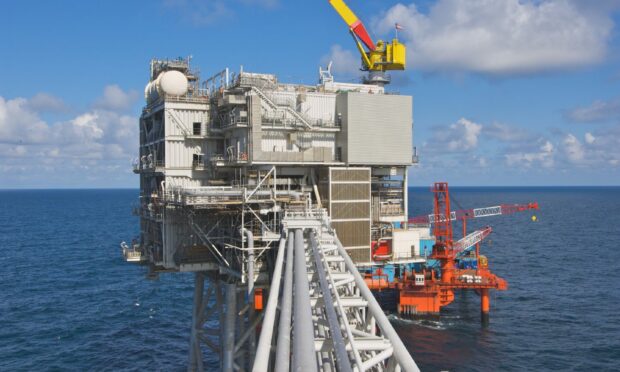Oil and gas representatives hailed government commitments to energy security and CCS but hit out over the lack of any let up in windfall taxes amid today’s energy policy blitz.
Offshore Energies UK (OEUK) welcomed the Energy Security plan’s recognition of the industry’s role in supplying energy and supporting the move to net zero, but warned that the North Sea’s future “hangs in the balance” unless windfall taxes are alleviated.
Harbour Energy echoed the trade body’s assessment, saying it was “disappointed” announcements “did not include support for domestic energy security” through changes to the Energy Profits Levy (EPL).
Calls for floor price mechanism
OEUK and its member have long called for a “trigger price” or “price floor” within the levy, which would mean additional rates would only apply when oil or gas prices are high.
They said the Chancellor has acknowledged that wholesale gas prices have already sunk to levels similar to those seen before Russia’s invasion of Ukraine.
“Industry has repeatedly asked government to introduce a floor price mechanism into the levy to ensure the tax is appropriately targeted at realised windfall profits and ceases to apply when oil and gas prices fall,” Harbour said in a statement today.
“This is an important factor for companies like Harbour when taking investment decisions including for both our traditional oil and gas projects and new ventures like CCS.”
The firm is a key backer behind the Viking and Acorn CCS projects and welcomed the launch of the “Track 2” process which would see them secure government funding, but said the levy made investment decisions in projects like these more difficult.
“The current design of the EPL impacts long term decision-making and risks undermining the otherwise welcome news on advancing technologies like CCS that will underpin the UK’s transition to a lower carbon energy system and be developed in large part by oil and gas companies.”
EPL ‘undermining’ energy security
OEUK chief executive David Whitehouse said the organisation was pleased to see support for low-carbon energies, but said policymakers should be “honest” about the present mix.
“Oil and gas still supply 76% of the UK’s total energy so, while we build that future, there is no simple choice between oil and gas on the one hand and renewables on the other,” he noted.
“All political parties have an obligation to be honest with the public about the central role of oil and gas for domestic and business use here in the UK for the decades ahead.
“We need to rebuild investors’ confidence – but windfall taxes are undermining our energy security and a successful home-grown energy transition.
“Prioritising UK oil and gas over imports is better for the UK economy, UK jobs and for global emissions because we know oil and gas produced here often has a lower carbon footprint.”
Taxes a ‘major deterrent’
Mr Whitehouse said the headline 75% tax rate on oil firms was three times that of conventional UK business, and had prompted 90% of the region’s operators to cut expenditure.
“When prices fall, as is already happening, the windfalls will disappear – but the tax will remain because it is locked in place till at least 2028.”
Indeed Harbour, the North Sea’s largest producer, posted pre-tax profits of some £1.9m ($2.4 billion) for the 2022 financial year, but said a £1.3m ($1.5bn) EPL charge essentially “wiped out” net takings to just £6.4m ($8m).
Critics contended this amounted to “clever accounting”, as it included a write down of deferred tax losses which could no longer be offset in future years as a result of the EPL.
In light of the higher levies, the firm said it would reduce its UK investment and staffing levels, though affirmed it still held a “solid financial position” and announced $300m of new buybacks and dividends for shareholders.
Mr Whitehouse maintained the taxes were “a major deterrent for investors” and said delivering energy security would be made “much harder by the lack of clarity on when the windfall taxes will go.”
“The Office for Budget Responsibility costed net zero at £1.4 trillion in 2020 prices – of which more than £1 trillion will have to come from the private sector.
“We need fiscal policies that attract those investors to the UK– rather than driving them away.”


Conversation